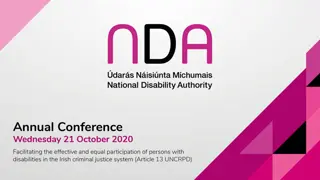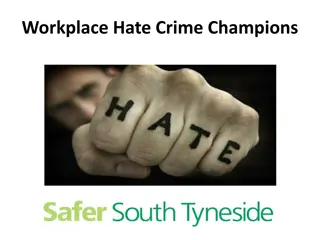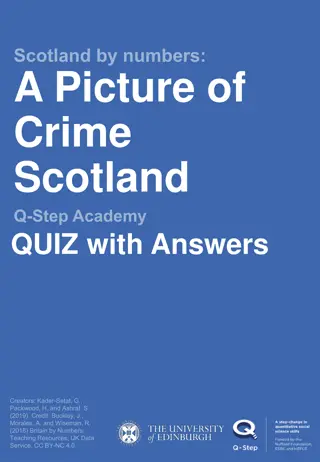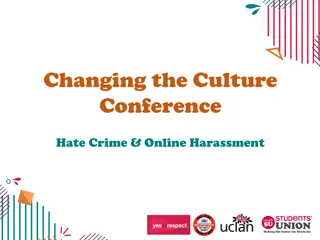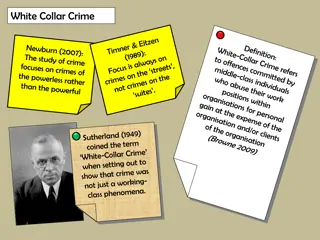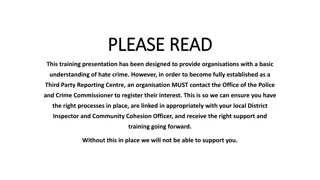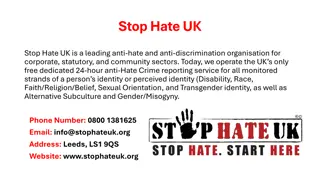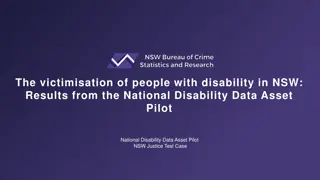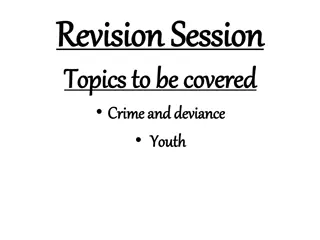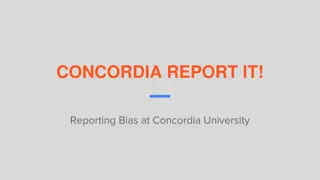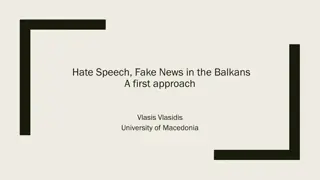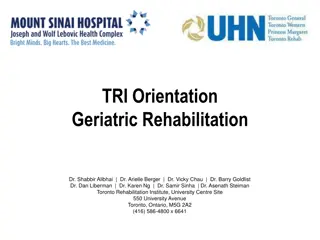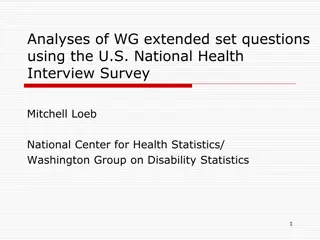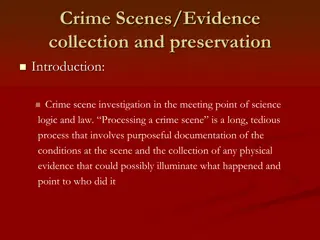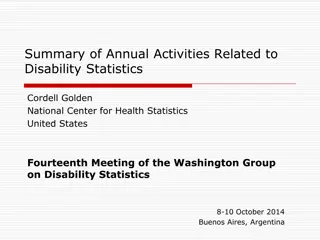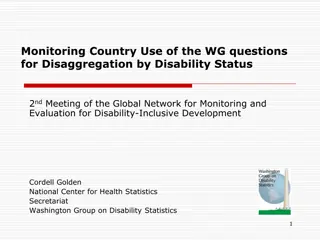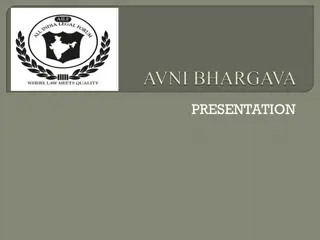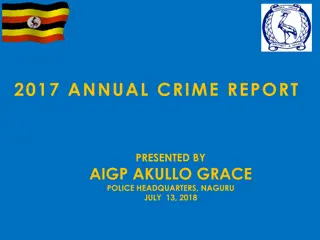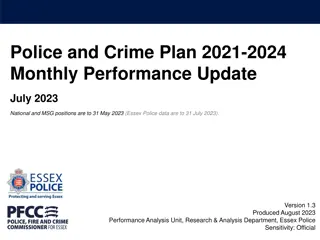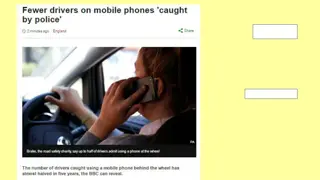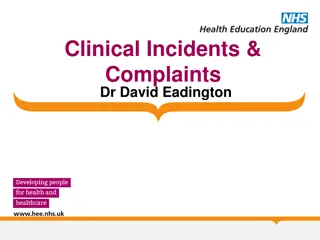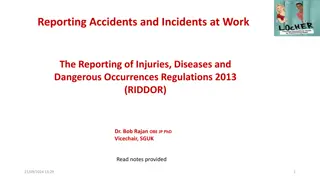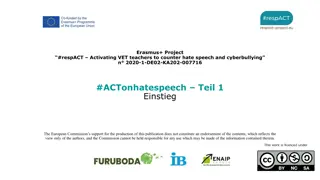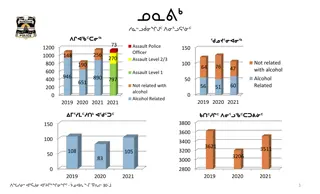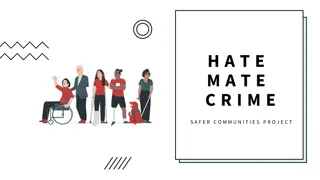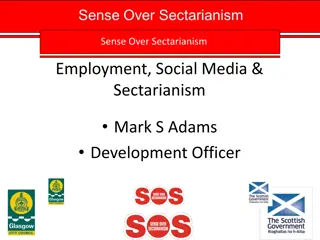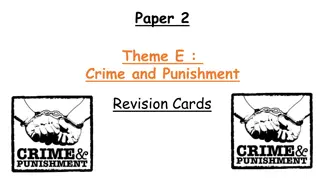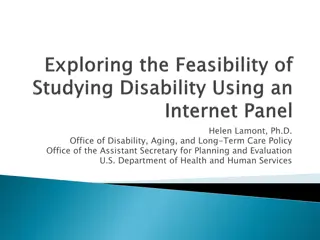Understanding Disability Hate Crime and Hate Incidents
Disability hate crime and incidents involve criminal offenses or non-crime incidents perceived as motivated by hostility or prejudice towards a person's disability. Key elements include hostility, prejudice, perception, and may involve racial, religious, or sexual orientation hate. Perceptions are crucial, regardless of evidence, and mate crime involves exploitation by fake friends. Recognizing common factors can help prevent and address such incidents effectively.
Download Presentation

Please find below an Image/Link to download the presentation.
The content on the website is provided AS IS for your information and personal use only. It may not be sold, licensed, or shared on other websites without obtaining consent from the author. Download presentation by click this link. If you encounter any issues during the download, it is possible that the publisher has removed the file from their server.
E N D
Presentation Transcript
LETS STOP DISABILITY HATE CRIME
What is Disability Hate Crime? Any criminal offence which is perceived by the victim or any other person to be motivated by hostility or prejudice based on a person s disability or perceived disability NPCC / CPS definition
Disability Hate Incident (non crime) Any non-crime incident which is perceived by the victim or any other person to be motivated by hostility or prejudice based on a person s disabilityor perceived disability NPCC / CPS definition
Key elements of Disability Hate Crime and Hate Incidents Hostility Prejudice Perceived (not just perception that is a hate incident or crime, perceived disability) Disability, but may also be accompanied by racial, religious, sexual orientation or transgender hate
Hostility No definition within legislation for hostility Dictionary definition, e.g. antagonism, unfriendliness, malice, unkindness, spitefulness, hatred
Prejudice Oxford Dictionary definition: A pre-conceived opinion that is not based on reason or actual experience Includes a dislike, hostility or unjust behaviour deriving from pre-conceived and unfounded opinions
Perceived Anyone can perceive that an incident is a hate incident or hate crime. The apparent lack of evidence of hate motivation is not relevant for recording it as a hate incident or crime. Can be perceived that a person was disabled (etc), but victim does not have to be.
Mate Crime The exploitation, abuse or theft from any vulnerable person by those they consider to be their friends. Often referred to as 'fake friends'.
Common factors Previous disability hate incidents or crimes Escalating in severity and frequency Fake friends Multiple perpetrators condoning and encouraging False accusations of being paedophiles or informants Sustained attacks Excessive violence Opportunistic becomes systematic and regular targeting Cruelty, humiliation and degradation
Case Study: Miss J She has both mental health and mobility problems She s a single mother to two small children She s on state benefits. She s what is termed as vulnerable A gang of boys on the estate have been harassing her over the past few months The police looked at me because I m grown woman being bullied and say just deal with it but I can t because when I m face to face with eight or nine people all giving me verbal abuse
Miss Js fears of reporting Not being believed False allegations from the perpetrators Losing control and fighting back Potentially losing her kids if she does
Why stopping Hate Crime is so important Has a great impact on the victim Affects the wider community Has an impact on community cohesion Affects confidence in the Police and other agencies Prevents escalation in seriousness The cost to society is massive.
Impact and Effect Fear Reluctance to leave home Homes become fortress Isolation Changes in routines Family breakdown Acceptance of victimisation Loss of friends / friends do not visit Impact on health and wellbeing
Challenges of Disability Hate Crime Massive under reporting including Anti-Social Behaviour incidents Lack of understanding Is it vulnerability or hate ? Context of disability hate crime is different from other hate crimes
How do you report a Disability Hate Crime or Incident? In an emergency call the police on 999 If it is not an emergency call the police on 101 If you wish to report in confidence call Crimestoppers on 0800 555 111 Use the True Vision Report It form https://beta.met.police.uk/true-vision-report-hate- crime/
image228073x Report it to stop it! Report it to stop it! Stephen Brookes MBE Disability Hate Crime Network E mail DHCN2007@btinternet.com DHCN - Stephen Brookes 2017
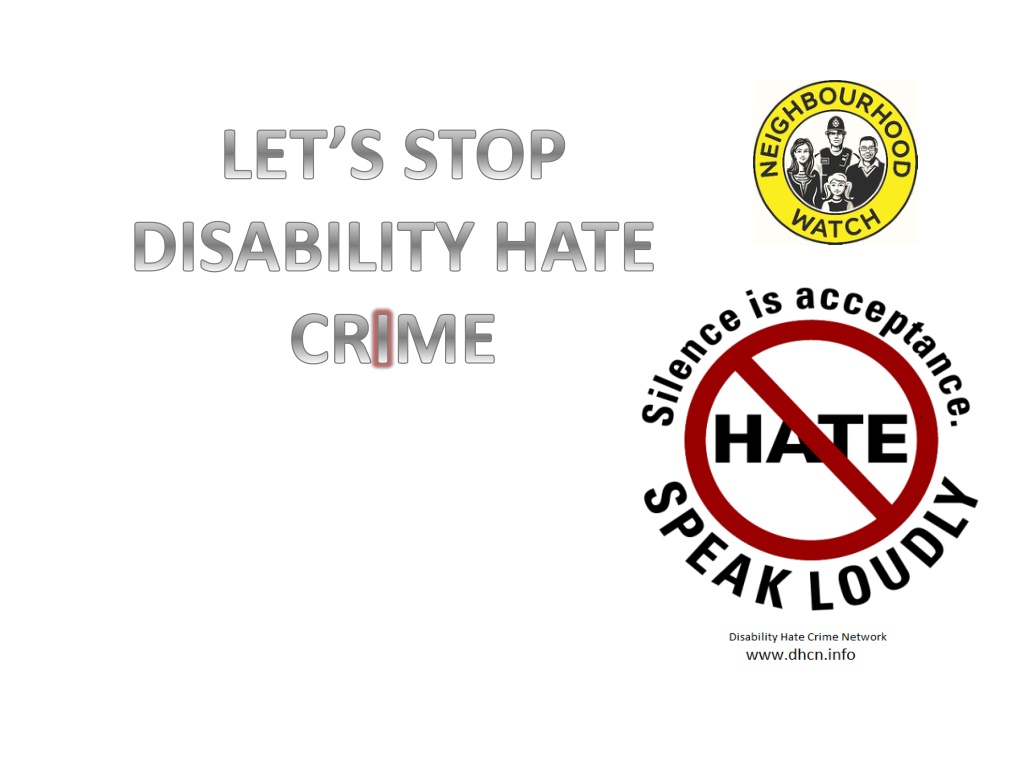

![Prevention and Combating of Hate Crimes and Hate Speech Bill [B.9B.2018]](/thumb/60513/prevention-and-combating-of-hate-crimes-and-hate-speech-bill-b-9b-2018.jpg)
